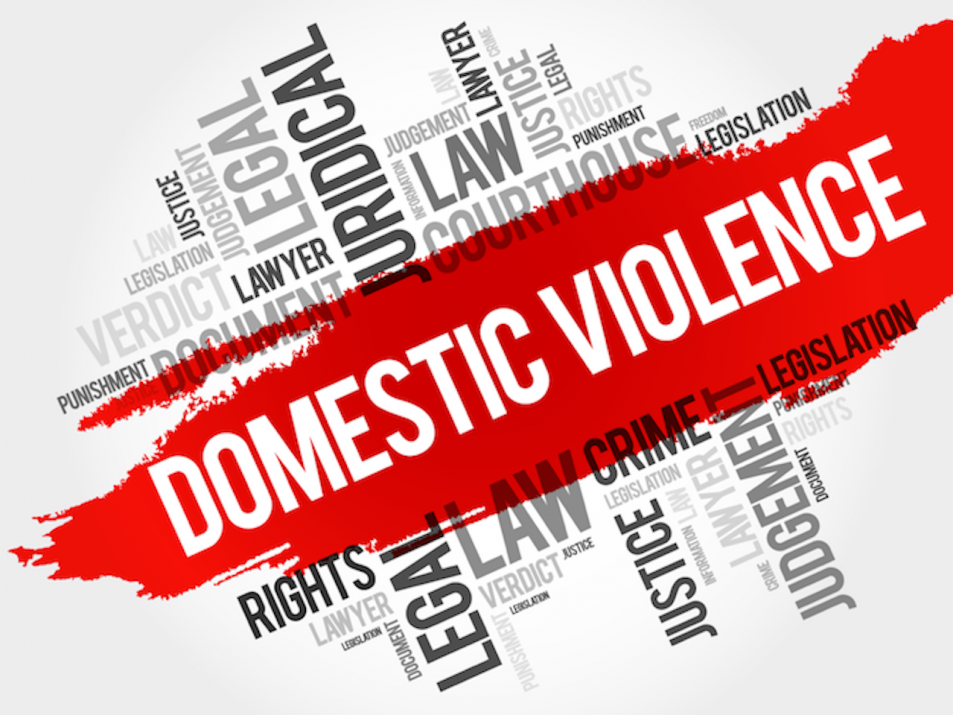
The Tunisian parliament will soon start debating a new set of laws regarding violence against women, proposed by the Ministry of women’s affairs. Honestly, I am neither excited nor delighted. Not only because it is shameful that in 2017, we still don’t have a solid legal framework to protect women and girls from violence, but also because this is the minimum I expect from our lawmakers and from a self-proclaimed “progressive government” that won the elections on the backs of the women’s vote.
As an unapologetically feminist, I consider that my role is not to praise but to highlight the gaps instead. And the new law falls short of criminalizing clearly, precisely and undoubtedly the marital rape.
If you Google marital rape, you will probably find this definition: “sexual intercourse forced by a spouse on the other spouse, against that person’s will”. If you check oxforddictionaries.com you find “rape committed by the person to whom the victim is married”.
By ignoring the reality of marital rape, the Tunisian government is sending a clear message: Women, you don’t own your bodies and we won’t protect you.
I was introduced to the phenomenon of marital rape trough women’s stories, anecdotes and a movie. When I was 17, I went to watch “Bent Familia” (“A good girl”). There is a scene of marital rape with the husband mad at his wife when she told him to not touch her again. He said: “Don’t touch me! Did you forget that you are my wife?”. He then raped her, she cried. I was choked. I still remember the scene and how my stomach hurt me that day. It was an eye-opener.
I remember when I was a teen, I attended a wedding, and the day after the bride was hospitalized as she couldn’t stand the intercourse forced by her husband to prove to the world that his wife is “a virgin”. It was a marital rape.
Marital rape could happen in the first nights of the brides, when husbands are supposed to break the wife’s hymen as a proof of women’s virginity. What a humiliation to women’s bodies and dignity and what an outdated belief that put women’s psychological and emotional capabilities at risk. Dr. Katz and Dr. Tabisel, two diplomats in the American board of sexology founder and co-director of a New York-based women’s Therapy Center, state that “although there remains a stubborn misconception that a virgin will always have an intact hymen, the truth is that most women age 20 and older do not have a hymen, or only have a partial hymen, even if they have never had any vaginal penetration. Because unlike the prepubescent and adolescent vagina, the adult vaginal tissue has been under the influence of estrogen for several years, which causes it to elasticize and expand”.
When I read their book “Parting and Curtains, A women’s handbook of Sex and Sexuality”, I can’t help but think that if our patriarchal society knew about this, that bride would not have been hospitalized and ashamed.
I know a lot of anecdotes of women hating sex because they are obliged to have intercourse against their will just to please the husband and they never have an orgasm. They hate sex but they don’t call it rape, they deeply believe that it their duties to please the partners.
By signing the marriage contract, some men think that women’s bodies are their properties. By accepting the social norms and interiorizing the patriarchy, most women don’t challenge these assumptions. Look how our culture is obsessed by our vaginas. Everybody has a say. Some take it even further, to directly connect it with the family’s honor. Look how the hymen’s construction industry is flourishing in Tunisia. I even once read an article describing how some married women reconstruct their hymens “to offer” it again to their husband as a gift in the wedding anniversary.
All these examples show how the societal, political and cultural forces shape women’s experiences and beliefs about their own bodies.
In the face of ignorance, government has the responsibility to protect. Anne-Marie Slaughter explains that the three responsibilities every government has towards its citizens:” The oldest and simplest justification for government is as protector: protecting citizens from violence”. Women are not the sister of, the daughter of, and the wife of. Women are first of all individuals, citizens and taxpayers and they deserve to be protected sometimes even from the brother, the father and the husband.
By falling short of criminalizing marital rape, the Tunisian government thinks that it is protecting the social fabric of the society through protecting the family. This kind of law could destroy the institution of marriage would argue others. We always protect the family, the marriage institution, the society and the whole world on the backs of women. Why women have always to pay the price of this “protection”? Let’s put it simple: by undermining women’s rights, we are only protecting the patriarchal social structure. Our first right ever as women is to own the space that we spend our lives in: Our bodies.
I own my body. My body doesn’t belong to my father, or to my husband. Neither is my family’s honor and the government should protect me from the violence and not structural the violence on the name of culture or religion.
The impact of partner violence against women is well known and extensively studied. UN Women argues that “women who have been physically or sexually abused by their partners are more than twice as likely to have an abortion, almost twice as likely to experience depression, and in some regions, 1.5 times more likely to acquire HIV, as compared to women who have not experienced partner violence.” Violence is expensive and presents a high cost for our society. According to UN Women, these include “costs of services to treat and support abused women and their children and to bring perpetrators to justice, costs in lost employment and productivity and the costs in human pain and suffering. The cost of intimate partner violence in the United States alone exceeds US$5.8 billion per year: US$4.1 billion is for direct medical and health care services, while productivity losses account for nearly US$1.8 billion”. These costs must also be prevented.
I trust that through this debate, Members of Parliament will focus on the issues of marital rape and will not consider it as a “private issue” and therefore fail to examine the political nature of the private space.
We often measure women’s empowerment by the number of women who made it to the top: CEOs, MPs, ministries, directors. But how about measuring women’s emancipation by the number of women who really own their bodies? And how women are performing gender in the private space? My conviction is that the real battle for gender equality lies firstly in the private space. We will achieve gender equality the day women will have an absolute power and control over their bodies. Meanwhile, to all the misogynistic out there, and to paraphrase the Egyptian-American feminist Mona Eltahawy: “stay out of my vagina unless I want you in there”.
By Ikram Ben Said – Feminist and Founder of Aswat Nisaa, (Voices of Women) A non-governmental Tunisian organization working on advancing women’s political participation and advocating for gender sensitive public policies.

Head shot of Ikram Ben Said, courtesy of her.


